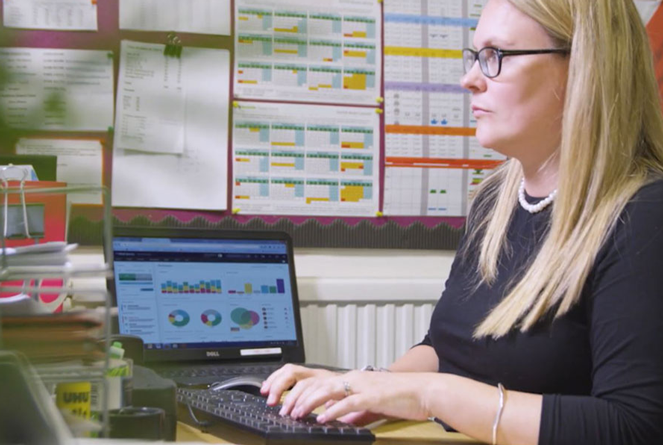Introduction
School clerks play a vital, yet often overlooked, role in the intricacies of education. The UK has recently faced a dire shortage of school clerks, leaving many educational institutions grappling with administrative challenges. In this blog post, we will look at the critical role of school clerks to governors, the pressing issue of their shortage, actionable steps to address this crisis and what it takes to become a school clerk.
The impact on schools and governors
The shortage of clerks to school governors significantly impacts both schools and governance bodies. With limited clerical support, schools place increased workloads on existing staff, particularly teaching and administrative personnel, diverting their attention from essential educational responsibilities. This can result in operational inefficiencies and hinder timely decision-making processes, introducing a risk of governance inefficiency and potential legal compliance issues. Additionally, the shortage limits opportunities for professional development for aspiring school clerks, hindering the growth of a qualified workforce.
The overall consequence is a strain on schools' effective functioning and governance structures, emphasising the critical need to address the shortage of clerks to benefit schools and their pupils.
What is the role of a school clerk to governors?
The role of a school clerk to governors is multifaceted, serving as the backbone of efficient governance within schools, academies, and trusts. Here are the key aspects of their responsibilities:
Meeting preparation
School clerks prepare and distribute meeting agendas, ensuring that governors are well-informed and can contribute meaningfully during discussions.
They collate relevant documents and reports, facilitating a smooth flow of information during governance meetings.
Meeting administration
During meetings, clerks take detailed minutes, documenting discussions, decisions, and action points. These minutes serve as a vital record of governance proceedings.
Clerks are important in maintaining order during meetings, managing time effectively, and covering all items on the agenda.
Legal compliance
School clerks keep up to date with educational policies and regulations, ensuring that governance practices align with legal requirements.
They support governors in understanding their roles and responsibilities, guiding them through compliance procedures.
Communication hub
Acting as a liaison between governors, school leadership, and external stakeholders, clerks facilitate effective communication channels.
They manage correspondence, sharing information promptly and accurately with all relevant parties.
Record keeping
Clerks maintain in-depth records of governance activities, ensuring transparency and accountability.
These records are valuable for audits, reviews, and continuous improvement in governance processes.
How can we address the crisis?
Addressing the shortage of school clerks requires a concerted effort from educational authorities, governing bodies, and potential candidates. Here are actionable strategies to mitigate the crisis:
Invest in CPD
Develop targeted training programs to equip individuals with the skills required for the role of a school clerk. These programs should cover governance procedures, legal compliance, and effective communication.
Promote the role
Raise awareness about the significance of the school clerk's role and its impact on efficient governance. Encourage educational professionals and individuals with administrative skills to consider this career path.
Collaborate with schools
Encourage collaborations with universities and colleges to integrate school clerk training into relevant courses. This ensures a pipeline of qualified individuals entering the field.
Flexible working arrangements
Consider flexible working arrangements, such as part-time positions or remote work, to attract a diverse pool of candidates, including those with families or other commitments.
How to become a clerk to governors
So you’ve decided to become a clerk to your school's team of governors but need help deciding where to start. Our team of school expert governance and clerking professionals have devised five key steps and requirements for anyone considering a career in school clerking.
1. Educational background
While there are no strict educational requirements, having a background in administration, business, or education can be advantageous.
2. Obtain relevant skills
Develop minute-taking, record-keeping, communication skills, and familiarity with educational policies and procedures.
3. Training and Professional Development
Consider enrolling in training programs or courses specifically designed for school clerks.
4. Volunteer to gain experience
Seek opportunities to volunteer to gain experience in school governance settings. This hands-on experience is invaluable for building practical skills.
5. Network within the education community
Attend educational events, join professional networks, and connect with school governing bodies to increase visibility and opportunities.
Supporting schools in their time of need
The shortage of UK school clerks is a pressing issue that demands immediate attention and collaborative efforts.
If you need support with your clerking needs, our team of expert consultants are on hand to help you today!


/Primary%20school%20.jpg?width=2000&name=Primary%20school%20.jpg)








.png?width=940&height=788&name=Lingfield%20College%20Case%20Study%20(5).png)
-1.png?width=1000&height=833&name=National%20Association%20of%20Head%20Teachers%20(3)-1.png)
-3.png?width=1080&height=1080&name=Untitled%20design%20(10)-3.png)





